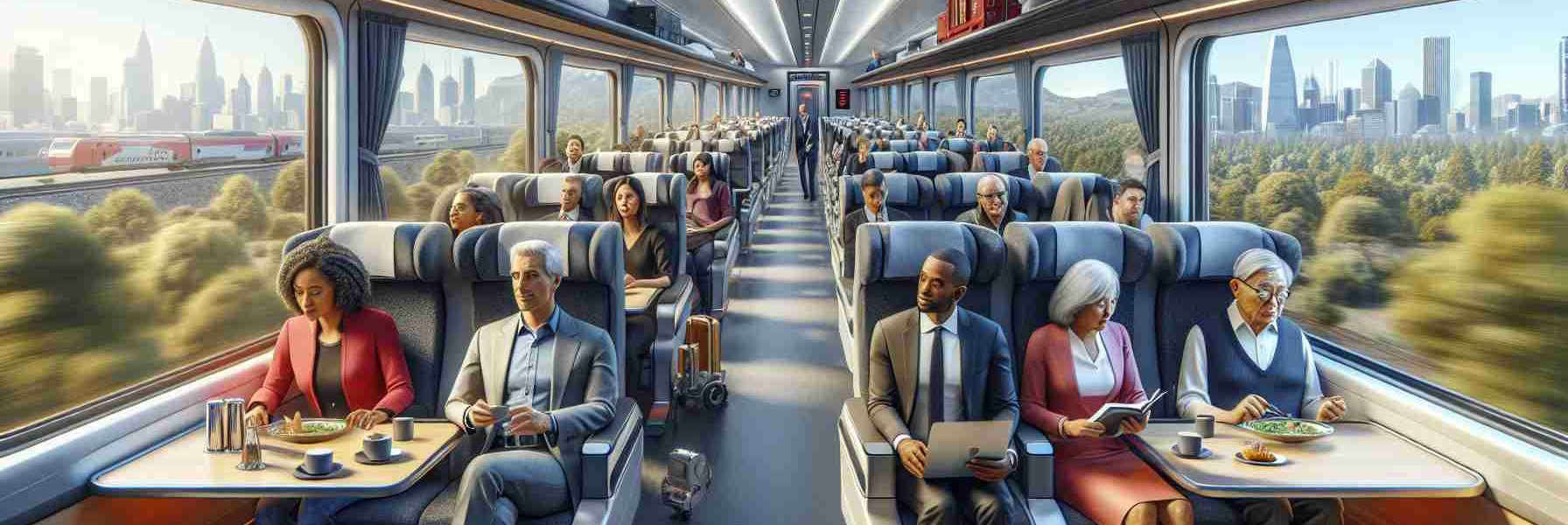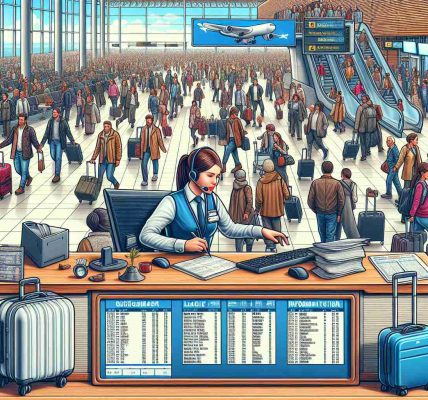Delays in Rail Travel
Recent reports have highlighted the ongoing issue of delays faced by Amtrak passengers traveling between major cities due to freight train congestion on shared rail lines.
Government Intervention
In response to the chronic delays caused by Norfolk Southern, the federal government has taken legal action to address the situation. The Department of Justice has filed a lawsuit against the railroad company for consistently violating the law that mandates priority for Amtrak trains.
Enhancing Passenger Experience
Passenger trust in Amtrak and the preference for rail travel over other modes of transportation have been negatively affected by the delays attributed to Norfolk Southern’s operations. The government’s intervention aims to ensure that passengers arrive at their destinations on time and receive the quality service they expect.
Industry Challenges
The conflict between passenger and freight rail services underscores the challenges of managing shared rail infrastructure. With the implementation of new laws and regulations, there is an opportunity to improve collaboration between different rail operators for the benefit of both passengers and cargo transportation.
Future of Rail Travel
As the rail industry evolves and receives significant funding for infrastructure projects, there is optimism for a more efficient and reliable rail travel experience. By enforcing existing laws and regulations, stakeholders can work together to create a seamless and enjoyable journey for passengers across the country.
Modernizing Rail Infrastructure for Enhanced Travel Experience
Rail travel stands at a pivotal juncture where innovation and collaboration offer a promising path towards improving the overall passenger experience with Amtrak services. While previous discussions have addressed the challenges posed by delays and government interventions, there are additional facets to consider in order to propel rail travel into a new era of efficiency and customer satisfaction.
New Technological Solutions
One key aspect that can revolutionize the rail travel experience is the integration of cutting-edge technologies. Implementing advanced signaling systems, such as positive train control (PTC), can enhance safety and reduce delays by enabling more precise control over train movements. Furthermore, the utilization of big data analytics can optimize scheduling and maintenance operations, leading to smoother journeys for passengers.
Infrastructure Upgrades
Investments in upgrading rail infrastructure are crucial to accommodating the growing demand for rail travel and ensuring a seamless experience for passengers. By modernizing tracks, bridges, and stations, not only can travel times be reduced, but the overall comfort and convenience of train travel can be significantly enhanced. Such improvements are vital for attracting new riders and retaining existing customers.
Environmental Sustainability
Another important aspect to consider is the role of rail travel in promoting sustainability and reducing carbon emissions. Compared to other modes of transportation, trains are inherently more environmentally friendly. By shifting more passengers from cars and planes to trains, not only can congestion be alleviated, but significant strides can be made towards achieving a greener future.
Key Challenges and Controversies
– How can Amtrak and other rail operators effectively coordinate schedules to minimize conflicts and improve the overall flow of rail traffic?
– What measures need to be taken to address concerns about safety and security for passengers while traveling on trains?
– Are there potential conflicts of interest between prioritizing passenger services and maintaining efficient freight operations on shared rail networks?
Advantages and Disadvantages
Advantages:
– Rail travel offers a comfortable and scenic way to travel, without the stress of driving or flying.
– Trains are more energy-efficient and environmentally friendly compared to cars and airplanes.
– Investments in modernizing rail infrastructure can lead to faster travel times and improved passenger amenities.
Disadvantages:
– Delays and disruptions continue to plague the rail industry, impacting passenger satisfaction and trust.
– Maintaining a balance between passenger services and freight operations remains a contentious issue.
– Upgrading rail infrastructure requires significant financial investments and may face logistical challenges.
In conclusion, the future of rail travel hinges on a coordinated effort to embrace technological innovation, upgrade infrastructure, and prioritize sustainability. By addressing the key challenges and controversies surrounding the industry, stakeholders can pave the way for a more efficient, reliable, and enjoyable rail travel experience for passengers. To explore more about the latest developments in rail travel and infrastructure, visit Amtrak’s official website.




